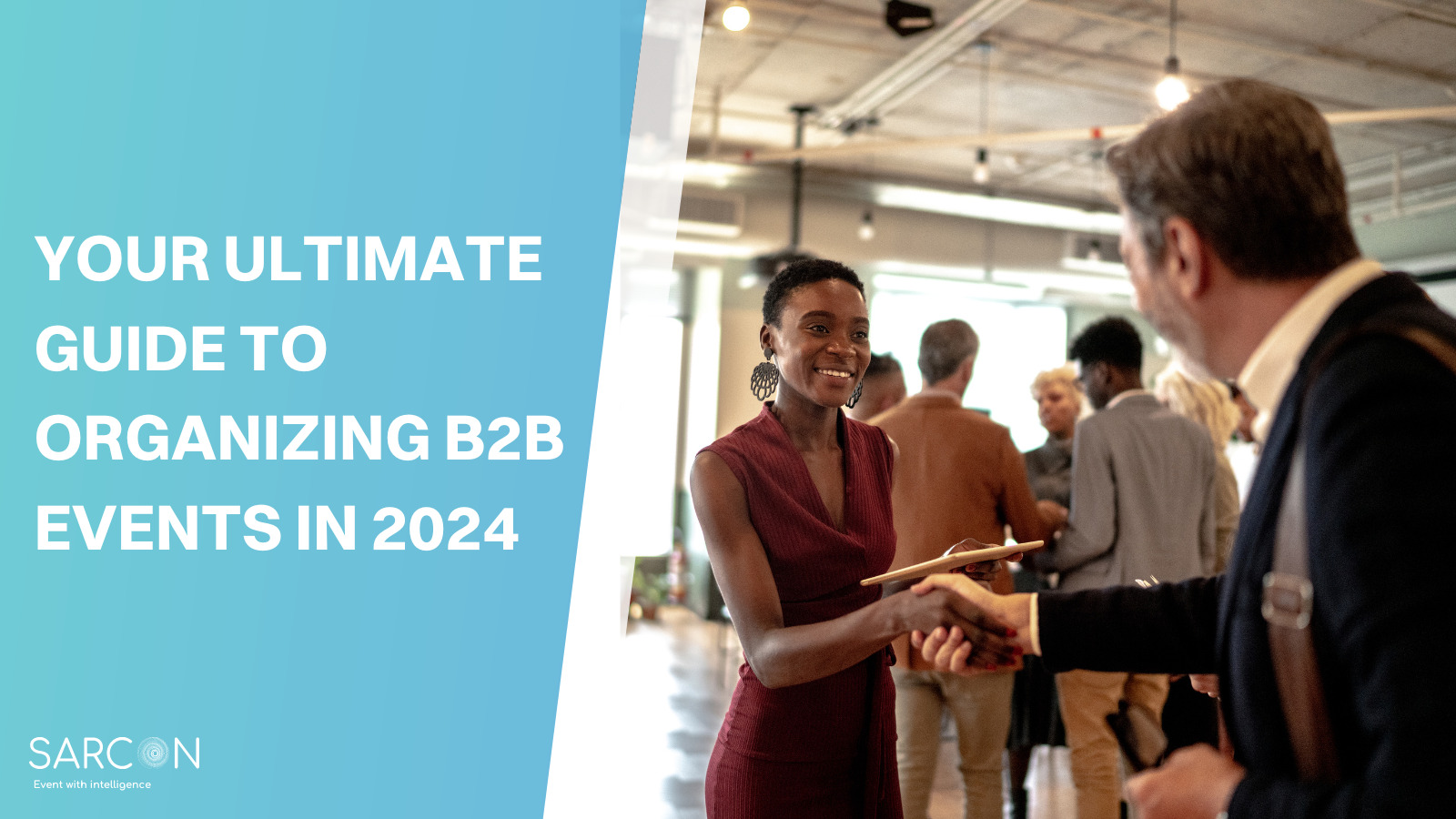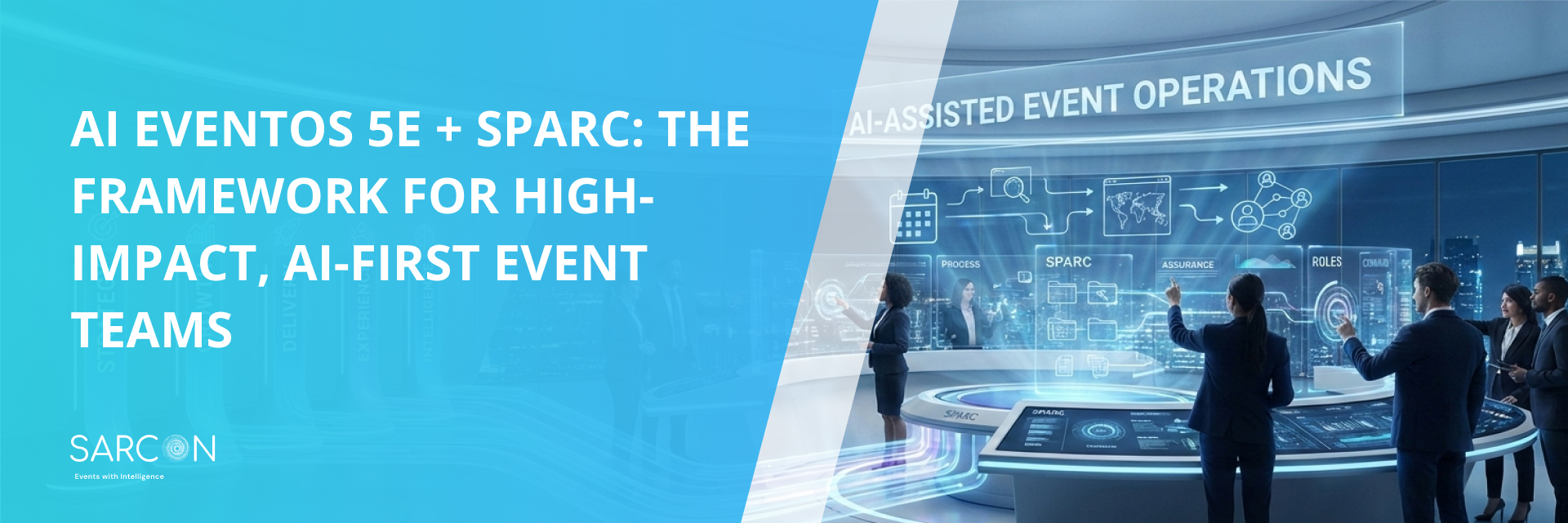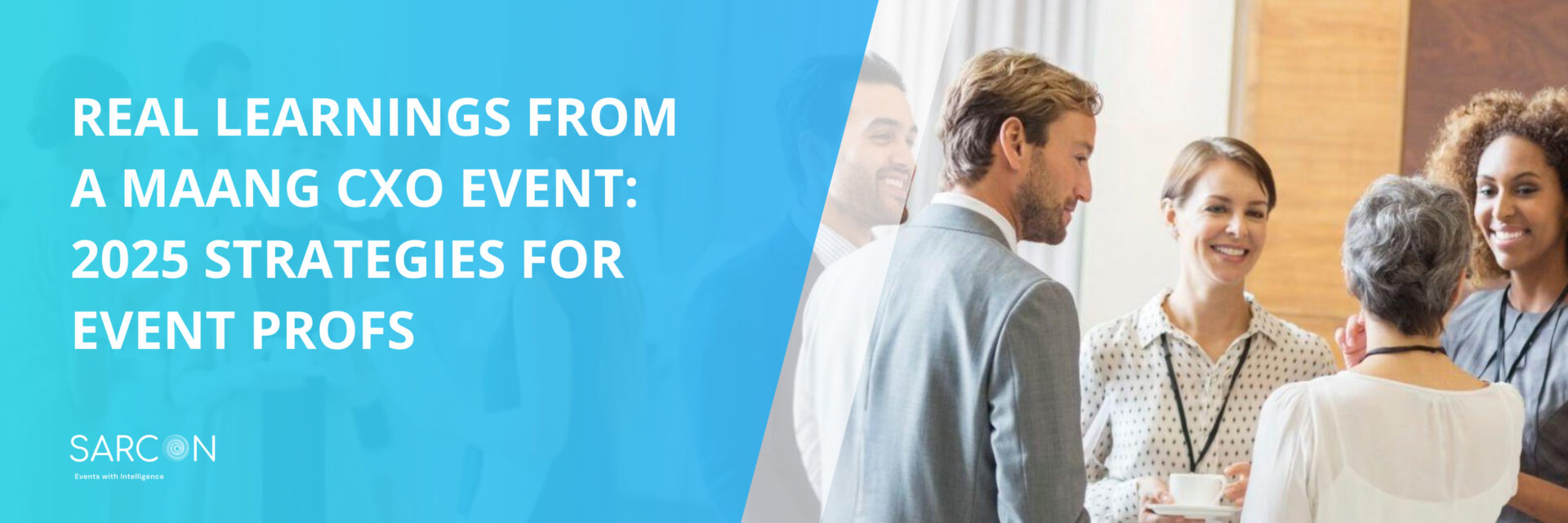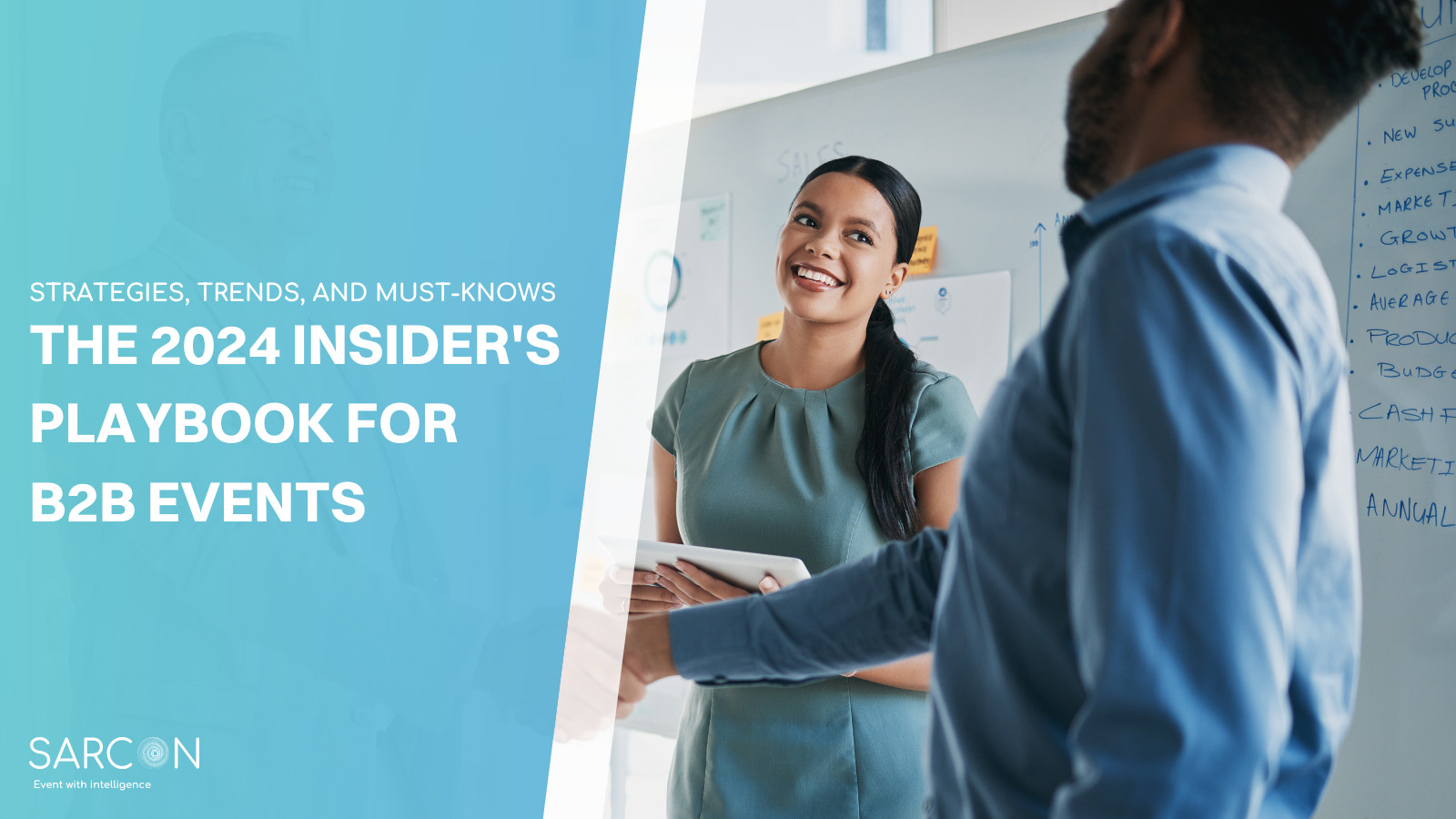The business world is constantly evolving, and the significance of B2B events as a strategic tool for networking, marketing, and knowledge sharing has never been greater. As we step into the year 2024, this guide aims to equip you with invaluable insights and expert advice to ensure your B2B events are not just successful but truly exceptional.
Guide to Organizing B2B Events in 2024
Now, let’s delve into the nitty-gritty of planning and executing a B2B event in 2024:
Pre-Event Preparation
Before the event unfolds, meticulous preparation sets the stage for a successful B2B gathering. Here are the key elements to consider:
- Networking Opportunities: Facilitate meaningful connections by incorporating dedicated networking sessions into your event agenda. Design structured formats for attendees to engage with one another, such as roundtable discussions, matchmaking algorithms, or virtual meetups. These opportunities enhance attendee experience and foster valuable relationships that extend beyond the event.
- Registration Process: Simplify the registration process to ensure a smooth and hassle-free experience for attendees. Implement user-friendly online registration forms that capture essential details efficiently. Offer early-bird discounts and incentives to encourage early sign-ups, and provide multiple payment options to accommodate diverse preferences.
- Speaker Selection: The success of your event often hinges on the caliber of speakers you feature. Carefully curate a lineup of speakers who resonate with your target audience. Ensure they are well-versed in industry trends and can deliver engaging, insightful presentations. Consider diverse perspectives and expertise to offer a well-rounded program that addresses various aspects of your industry.
- Content Creation: Develop valuable and relevant content that directly addresses pain points and challenges within your industry. Engage thought leaders and subject matter experts to contribute to the event’s content. Create a content strategy that includes webinars, whitepapers, and informative articles leading up to the event to pique the interest of potential attendees.
- Sponsorship: Attract sponsors to enhance the offerings and visibility of your event. Partnering with sponsors can help offset costs, provide additional resources, and offer added value to attendees. Craft attractive sponsorship packages that align with the objectives of potential sponsors and provide opportunities for them to showcase their products and services to your event’s audience.
- Leveraging Technology for Success : In the digital age, technology is at the heart of every successful B2B event. Enhance attendee engagement by leveraging mobile apps designed specifically for your event. These interactive event apps provide attendees with a platform to actively participate and engage with one another. Through these apps, participants can access event schedules, connect with fellow attendees, join discussions, and receive real-time updates, fostering meaningful interaction and strengthening networking opportunities.
Event Execution
When the event day arrives, flawless execution is paramount to delivering a memorable experience for attendees. Here are the critical components to consider:
- Engaging Sessions: Host a variety of engaging sessions, including presentations, panel discussions, and workshops. Ensure that the content aligns with your event’s theme and addresses the current challenges and trends within your industry. Encourage dynamic and interactive sessions that captivate attendees and provide actionable takeaways.
- Real-Time Interaction: Facilitate real-time interaction between speakers and attendees through Q&A sessions and live polls. Create opportunities for audience participation, fostering engagement and a sense of involvement. Utilize interactive tools and platforms to enable attendees to ask questions, express opinions, and vote on key topics.
- Feedback Mechanism: Establish a robust feedback mechanism to gather attendee insights and opinions during the event. Collect feedback through surveys, polls, and real-time comment sections. Use this feedback to make on-the-fly adjustments and improvements, ensuring that the event remains relevant and valuable to attendees.
- Networking Opportunities: Provide both virtual and physical spaces for networking, recognizing the diverse preferences and needs of your attendees. Host virtual networking lounges, matchmaking sessions, and attendee directories for online participants. For physical events, design dedicated networking areas, receptions, and social activities to encourage in-person connections.
- Content Accessibility: Ensure that event content remains accessible even after the event concludes. Record sessions and presentations to provide on-demand access to attendees and those who couldn’t attend in real-time. Create a centralized content hub where attendees can revisit presentations, download materials, and continue learning long after the event.
Lead Generation and Management
- Capturing Quality Leads: Lead generation is a core objective of participating in B2B events. To capture quality leads efficiently, leverage technology such as lead retrieval apps, QR codes, or business card scanners. Collect attendee information, including contact details and specific interests, to tailor your follow-up efforts effectively. Prioritize lead quality over quantity by focusing on individuals or businesses that align with your target audience and objectives.
- Follow-Up Strategies: The post-event follow-up phase is critical to converting leads into tangible business opportunities. Implement a structured follow-up plan that includes personalized communication with each lead. Reference your conversations and the specific interests or challenges discussed during the event. Provide additional value, such as informative resources or exclusive offers, to nurture the relationship. Timeliness is essential; follow up promptly to capitalize on the momentum generated during the event. Consistent and thoughtful follow-up is often the key to turning leads into clients or partners.
- Using Technology for Lead Management: Leverage customer relationship management (CRM) software to streamline lead management. This technology can help you track and categorize leads, measure conversion rates, and analyze the return on investment (ROI) of your event participation. Integrating your event leads into your existing CRM system enables seamless follow-up and ongoing relationship management. Automation tools can also assist in sending personalized follow-up emails, keeping leads engaged, and ensuring no opportunities are missed.
Post-Event Evaluation
After the event wraps up, it’s crucial to evaluate its success and plan for future improvements. Here’s what you should focus on:
- Measuring Event ROI: Assessing the return on investment (ROI) of your event participation is essential for evaluating your success. Compare the costs incurred (including booth space, travel, marketing materials, and staff) to the benefits gained (such as leads generated, partnerships formed, and sales closed). Analyze the data collected during the event, including the number and quality of leads, and calculate your ROI. Understanding the ROI allows you to determine the effectiveness of your event strategy and make informed decisions for future event participation.
- Budget Review: Evaluate the event’s budget to identify areas of efficiency and opportunities for cost optimization. Consider where resources were allocated effectively and where adjustments are needed for future events. A thorough budget review ensures that your event planning remains financially sustainable and aligned with your goals.
- Content Repurposing: Repurpose event content to extend its value beyond the event itself. Transform presentations, panel discussions, and workshops into articles, blog posts, webinars, or podcasts. Share this content through your digital channels to maintain post-event engagement and continue positioning your brand as a thought leader in your industry.
- Post-Event Marketing: Even after the event concludes, continue to leverage the momentum and visibility you gained. Publish blog posts, social media updates, and email newsletters highlighting your participation, key takeaways, and any notable achievements or connections made during the event. This ongoing post-event marketing keeps your brand top of mind and extends the impact of your event presence beyond the event itself. Share relevant content and insights that further engage your audience and position your company as an industry leader.
- Sustainability Initiatives: Assess the environmental impact of your event and explore sustainability initiatives. Implement eco-friendly practices such as reducing waste, offering digital event materials, and minimizing energy consumption. Embracing sustainability not only benefits the planet but also resonates with environmentally conscious attendees.
Conclusion
As you continue your journey in the world of B2B events, remember that each event is an opportunity to learn, grow, and refine your strategies. Apply the insights gained from previous events to continuously improve your approach. With a commitment to excellence and a well-defined plan, you can navigate and succeed in B2B events in 2024 and beyond. Best of luck in your future endeavors!
FAQs
How can I make my B2B event stand out in 2024?
To make your B2B event memorable in 2024, focus on personalization, technological innovation, and sustainability initiatives. Tailor your event to cater to your specific audience’s needs and preferences, leverage cutting-edge technology for immersive experiences, and adopt eco-friendly practices to align with contemporary values.
What role does Artificial Intelligence (AI) play in B2B events in 2024?
AI plays a pivotal role in enhancing the attendee experience at B2B events in 2024. It can provide personalized event recommendations, assist attendees through chatbots, and offer data-driven insights to optimize event outcomes. AI is instrumental in making events more interactive and efficient.
How can I measure the success of my B2B event effectively?
Measuring the success of your B2B event in 2024 involves a multi-faceted approach. Consider collecting attendee feedback to gauge satisfaction, track lead generation and conversion rates for ROI analysis, and assess the event’s environmental impact as part of sustainability efforts. A comprehensive evaluation ensures a holistic understanding of your event’s performance.
How can I attract sponsors for my B2B event in 2024?
Attracting sponsors in 2024 requires showcasing the unique value proposition your event offers. Highlight branding opportunities, lead generation potential, and the wide-reaching audience your event can provide to potential sponsors. Crafting compelling sponsorship packages that align with sponsors’ goals can also be highly effective.
What strategies can I employ to ensure a sustainable B2B event in 2024?
Organizing a sustainable B2B event in 2024 involves several strategies. Implement eco-friendly practices such as reducing waste, conserving energy, and minimizing carbon emissions. Consider offsetting your event’s environmental impact through initiatives like tree planting or renewable energy sourcing. Partner with sustainable suppliers and educate attendees on eco-conscious choices to promote sustainability effectively.



